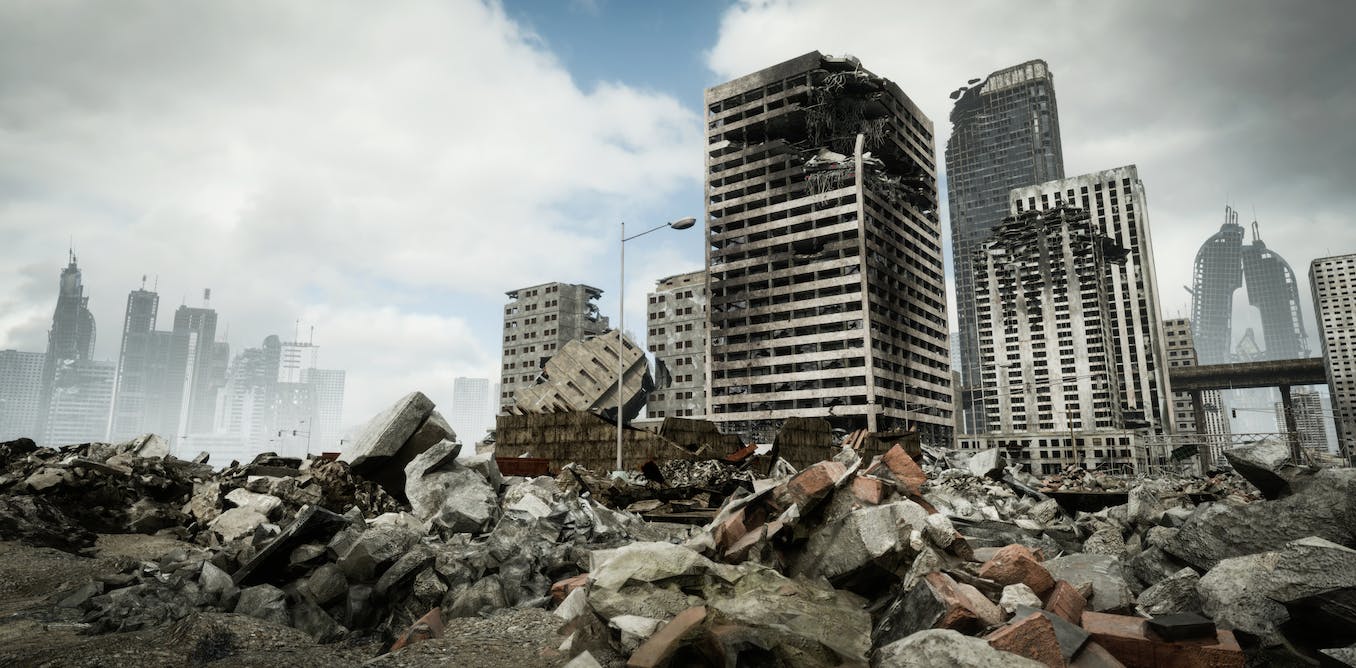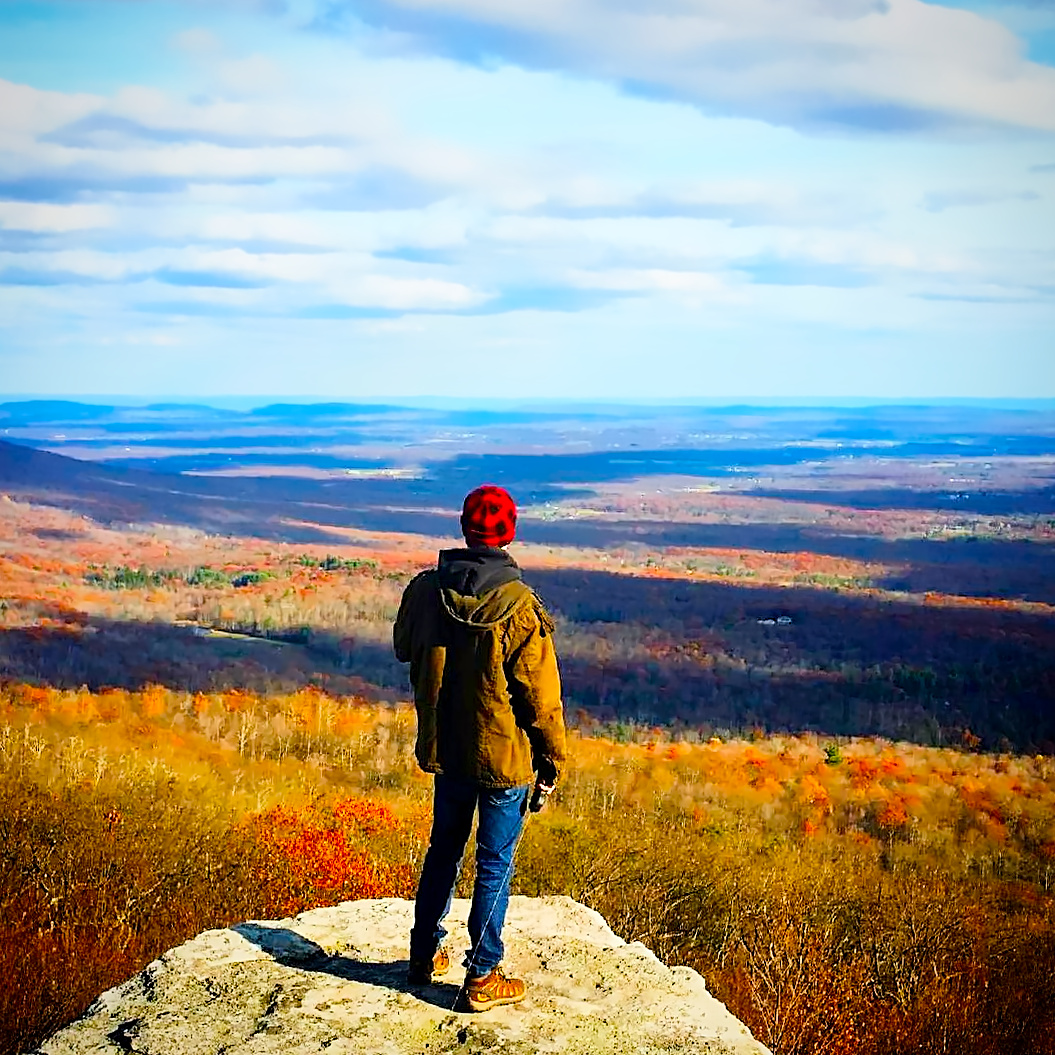- cross-posted to:
- geography@mander.xyz
- cross-posted to:
- geography@mander.xyz
I liked this article. It was a weird feeling to read it because I felt like it would be quite nice if humans disappeared from the planet…
At the same time I’m happy to be here, enjoying all the tech we have and the tools we have, the food we eat.
I still think humans can live in harmony with nature but we don’t have any good leaders to take civilization in that direction. So in the end, we will probably perish because we fought over power and money until there was nothing left.
I think you could get a good idea of what it would be like in the Chernobyl exclusion zone.
Or Fukushima. There are fantastic docs of both places.
Exploring the Unbeaten Path did a great series on it, they visit Fukushima I think two different times, but here’s one of their more popular video from that series, well worth a watch:
https://youtu.be/UJUvStUdY3E?si=wPEDSaGBsE_H7TR0
edit: If you’re curious for more, here’s the playlist for the whole series: https://youtu.be/DdhongzGxV0?si=70AuMB9xpFKYrqaa
Life After People was a History Channel series on that exact subject and they’ve put Season 1 on YouTube.
I used to watch that show all the time as a kid. I’ll have to rewatch it again thanks!
it would be quite nice if humans disappeared from the planet…
“Nice” is a human concept so if all human beings are gone, is it really “nice” and does it matter?
Because Mother Earth don’t give a F. Most of what we say about saving the Earth is in the sense of making it sustainably habitable for us humans and not to f up the economy too badly.
Mother Earth don’t care if it gets 30 degrees hotter and if the atmosphere turns into sulfuric acid because for the vast majority of its lifetime, it’s been human free anyways.
Well, the earth as a geologic entity doesn’t care about what we do or wether we exist, but it makes a hell of a difference for the living species we have as roomates. So for the earth as an ecosystem, it does matter whether we exist or not - and it’s better if we don’t.
Well that’s what I mean. OP says it’s kinda nice if we’d be all gone, and my response was what’s the point of things being “nice” if there are no humans to observe or affirm it? The only thing that is meaningful for us is if we find a way to sustainably coexist with everything, and not self-loathe our species into oblivion.
I always say this when people start harping about mother earth and climate change.
Before I go further and get downvoted. I BELIEVE IN CLIMATE CHANGE AND I WANT TO SAVE THE ENVIRONMENT.
There is literally nothing humans could do currently to actually destroy the planet, even if we set off all the nukes at the same time in the worst places. There’s nothing we could do to truly eradicate all life either. Plenty of places bacteria and small animals could survive until it’s chill again to evolve. What we can do is make it unlivable for ourselves and our offspring. Not that I personally care much since I don’t want kids and neither do my siblings but we still do our parts to at least minimize our impact.
I always find it arrogant that humans right now always say that we are destroying earth. We cannot destroy earth. Even if we detonate all our WMDs at the same time earth will endure.
I don’t think anyone uses the “we are destroying the earth” in a litteral sense. Common acception is more along the lines of “we are destroying the ecosystem we live in”.
That’s an interesting question though. How much WMDs do we need to destroy earth. Like really fuck it up. I suppose if we concentrate enough explosions on one side of the earth we may be able to alter the mass of the earth. This might change its path temporarily this leading to collision with either the moon or other planets.
Kurzgast (or however you spell it) did a video on this. In short, not enough fissible material on earth (well, I guess technically it’d be “in the earth”) to completely destroy the planet. Which is kinda remarkable cos that’s equivalent to 10 billion of the bombs dropped on Hiroshima.
Since you’re being pedantic, I will be too. According to the Cambridge dictionary, the word destroy can mean “to damage something so badly it cannot be used”. I’d argue making the planet incompatible for life is a pretty fucking good example of it being damaged so badly that it cannot be used. And we are doing that, it’s predicted we could lose up to 70% of all plant and animal species by the end of this century if we continue the way we are. Dunno how long after that it’d take to kill 100%, but I’d say taking out 70% is giving it a red hot crack…
The first casualties would be the billions of animals that are dependent on humans. Pets, zoo animals, farm animals in stables or enclosed meadows, animals in laboratories and research centers.
Some would go extinct, those who are dependent on breeding programs, like rhinos and some primates. Of course the extinction rate will immediately start to level off to almost normal rates. Once the forests and other nature grow back it will be back to normal and new species can evolve to fill the niches left behind by now extinct species.
It would depend on what the cause of human disappearance was and how quick it was.
The truth is pretty much anything capable of actually rendering humans extinct would probably render most animals extinct humans are far better surviving than most animals are. You talking asteroid impact, solar flare, nuclear war, massive climate change.
Humans can go into shelters, or build mitigation technology. The animals would just die if we didn’t help them.
The only possible way I can imagine that humans would go extinct quickly and not any other life form would be some kind of viral disease outbreak either natural or artificial, but I realistically can’t see something like that wiping out the whole species. You could have a death toll of 10 million people and it wouldn’t even equal 1% of the global population. Especially considering it wouldn’t be 10 million people all from the same area.
Think about all of the things humans have survived and with far inferior technology then anything we have now, ice ages, super volcanoes, global pandemics that keep coming back, hell in the 19th century one of the largest asteroids to hit the world since the extinction of the dinosaurs hit earth and literally no one died or even noticed.
You’re forgetting the most obvious cause.
Instantaneous, world wide alien abduction
The World Without Us by Alan Weisman is a good book to read if you’re interested in this topic.
Agreed. Interestingly the English canal tunnel would be among the last human made structures left after everything else is gone. That and the faces on Mount Rushmore. Old steel bridges would last for pretty long too as they are extremely overbuilt. Back then they really didn’t have ways to calculate how strong they need to be so they just made everything way beefier than necessary.
One thing I frequently think about is just how toxic everything would turn if humans suddenly disappeared. There’s a hell of a lot of waste and fuel that would go unmanaged and seep into the ecosystem. Nuclear reactors across the earth would a irradiate almost the entire water supply on the planet. Life might survive but not before a lot more species went extinct. Huge tracts of land would be no longer able to support life for possibly thousands of years
So many tailings ponds and retention dams would fail and severely mess up the landscape.
In the words of the inimitable Jeff (Chef) Goldblum, “life, uh, finds a way.”
yeah exactly my reaction, I’d worry the world would be messy - at least near any nuclear plant that doesn’t self shut down… I agree it would irradiate an enormous amount of water and soil but 1000 years later? most of the hot stuff will be long gone and nature will just adapt around the dead zones. see the results @ Pripyat.
Most of the radiation won’t go away for tens of thousands of years actually, We also don’t know the long-term effects on the animals and life in those zones, extreme cancer occurrence is likely for one
Farm animals would be easy prey for bears, coyotes, wolves and panthers. And pets? The cats would go feral – that is, they would become wild, though many would be preyed upon by larger animals. Most dogs wouldn’t survive, either.
Yeah, I think that tracks. When we domesticated our feline masters they seem to have retained most of their natural predatory instincts, so cats would probably do quite well for a while until the large animals come. Most dogs wouldn’t survive probably, domestication has changed them so much compared to wolves, also we practically mutilated some breeds when we bred them.
chernobyl like 50 more times i guess. and most of the apartment pets likely starved.
Probably a lot of unnatural disasters, like power plants shutting down since no one is maintaining them
There’s a dort of documentary that tries to show that. https://en.wikipedia.org/wiki/Homo_Sapiens_(film)?wprov=sfla1
There’s a book on this topic, The World Without Us, by Alan Weisman.
I like the idea of humans dissapearing.
From a neutral point of view, it’s too simple, one species in exchange for millions of other species and a planet.
Also on the universe scale, humans don’t really matter so no one cares except for us.If you want to see how fast things erode all you need to do is pull up half of Detroit on Google Maps and flip through streetview photos a few years apart.
A novel just came out by Debbie Urbanski called After World that is about this; I’m reading it now. If you’re interested in the possible consequences of human extinction, I recommend checking it out.
There are no possible consiquences, nature regains equlibrium again.
Some examples of short-term consequences that the book explores: who is the last human on Earth? How do they feel? How do humans come to terms with the extinction as it’s happening? How does society prepare, and how do we avoid sabotage and violence on the way out?
Longer-term consequences that the book explores: what lasts longest of what we leave behind? If the extinction happens after we develop more autonomous computers, what do those computers do once the humans are gone? What have they been directed to do?
Not necessarily. If we disappear, there will be no one left to maintain the dangerous technology we use that could ruin the planet further if it fails. For example, nuclear power plants.
Of course, even that will eventually clear up, and the planet will recover, but I wasn’t sure if you meant short-term or long-term.
Long term. Those problems will be resolved (mostly) in a few hundred years.
You forget toxic waste.
That problem will resolve itself (mostly) in a few hundred years. There will be no one to polute any further, thus nature will regain what was taken from her.
deleted by creator













